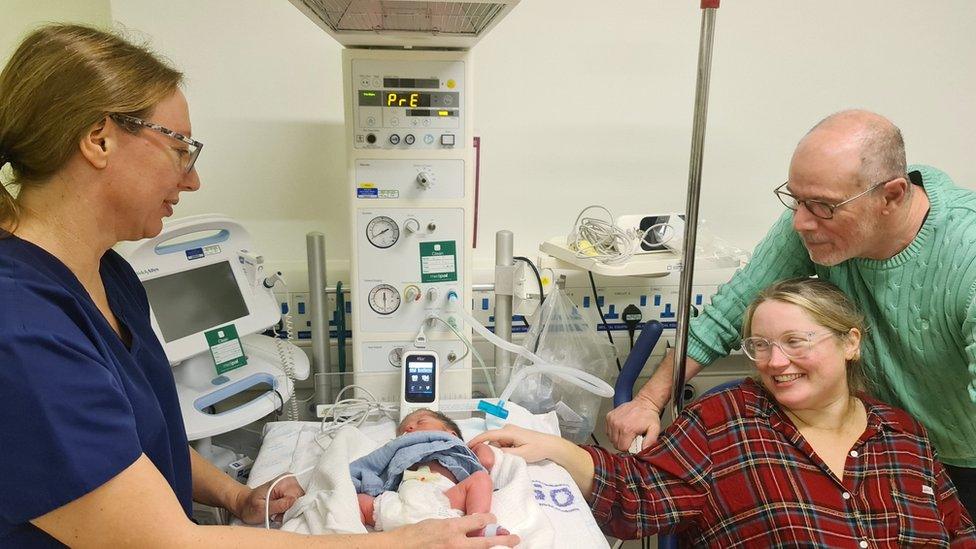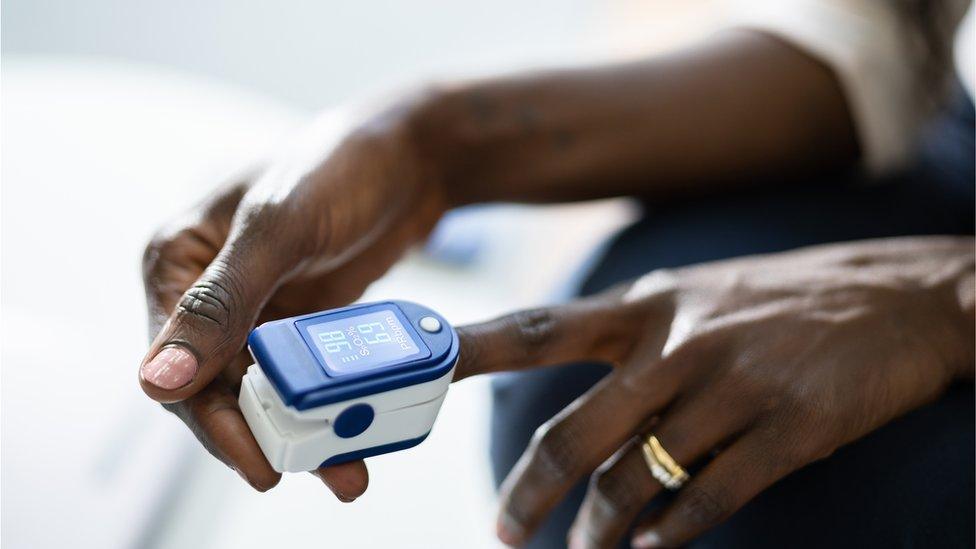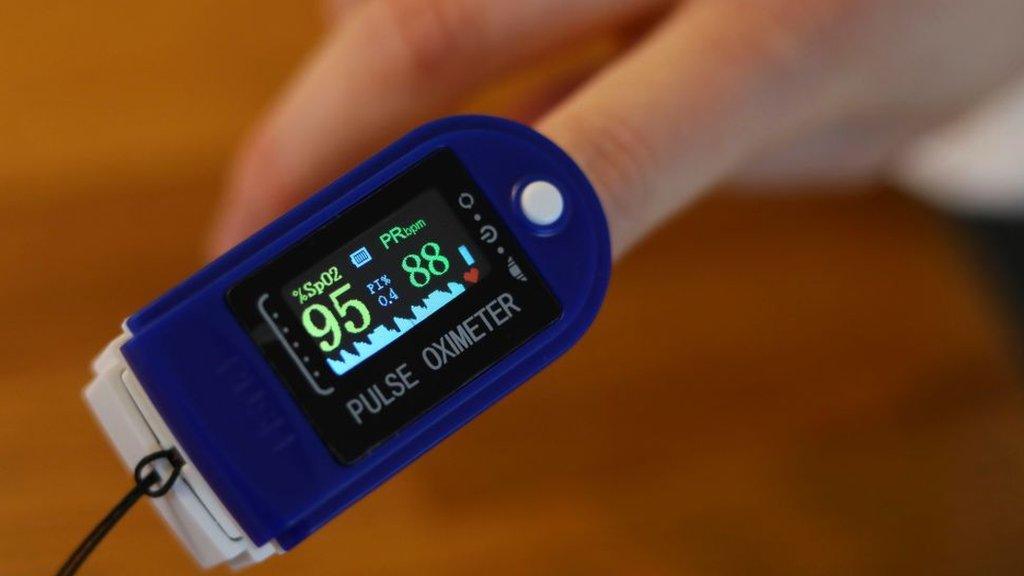Doctors warn babies dying due to lack of test

Physical examinations for newborns include checks for congenital heart disease twice by the time they are eight weeks old
- Published
Babies are dying unnecessarily or being left brain damaged due to a failure to adopt a simple test for heart defects, doctors writing in the Lancet journal have warned.
Pulse oximetry takes five minutes and measures a baby’s oxygen levels.
But doctors writing in the journal say that the National Screening Committee (NSC) is yet to adopt the test.
A Department of Health and Social Care spokesperson said the NSC took pulse oximetry "extremely seriously" and it was waiting for the results of further research before it reviewed the issue.
The spokesperson added that physical examinations for newborns also checked for congenital heart disease twice by the time the baby was eight weeks old.
A study that screened more than 20,000 babies at six hospitals in Britain, published in 2011, found that adding the test to traditional techniques identified 92% of babies with heart defects.
The lead author, Professor Andrew Ewer from the University of Birmingham, called for its adoption across all hospitals.
Since then, the United States has done just that and reports that, in a study of 27 million births, it reduced deaths by a third.
Postcode lottery
In the UK, despite a review in 2013 and two public consultations receiving positive responses from organisations including the British Association of Perinatal Medicine, the British Heart Foundation and several children's charities, the NSC recommended that pulse oximetry should not be included in the UK routine screening programme.
Prof Ewer said that, in spite of this, 78% of maternity networks had adopted the test, but there was a postcode lottery.
In the West Midlands, it is not yet used in Staffordshire and Walsall.
The East Midlands has the lowest uptake, with 46% of hospitals having adopted it so far.
“The universal pulse oximetry screening of all newborn babies will require additional resource," said Ann-Marie Riley, chief nurse at University Hospitals of North Midlands NHS Trust, which runs Royal Stoke University Hospital, as well as County Hospital in Stafford.
"This is high on our priority list and we will be actively working towards increasing our resources and implementing the test during 2024."
Mandatory pulse oximetry screening was introduced for newborns at the Shrewsbury and Telford Hospitals NHS Trust in 2022, before infants are four hours old.
The trust says babies cannot be discharged until the test has been carried out.
'Dying unnecessarily'
Prof Ewer argued that examining babies after birth without using pulse oximetry was not identifying almost half of babies before they collapse. Nearly a third are sent home without their heart condition being detected.
The article states that this is even more important for babies from ethnic minority families where blue lips – a tell-tale sign of low oxygen – can be harder to detect.
Pulse oximetry has also been found to identify the early onset of sepsis and pneumonia in newborn babies, and the study's authors believe it could help the government to hit its target of reducing neonatal mortality by half by 2025.
Rajwant Kaur Singh, chief executive officer of the Children’s Heart Federation, said that her charity continued to campaign for the introduction of the test.
"We are aware of families who have lost children who weren’t diagnosed, and those who have been saved thanks to pulse oximetry."
A Department of Health and Social Care spokesperson said the NSC “takes the issue of pulse oximetry extremely seriously and ran a consultation to establish the effects of screening all babies for low oxygen, the results of which were inconclusive.
“The UK NSC supported the call for further research to be undertaken before it reviews this issue. This is ongoing, and the results are eagerly awaited."
Follow BBC West Midlands on Facebook, external, X, external and Instagram, external. Send your story ideas to: newsonline.westmidlands@bbc.co.uk, external
Related topics
You might be interested in
- Published4 February 2024

- Published11 March 2024

- Published21 January 2021
